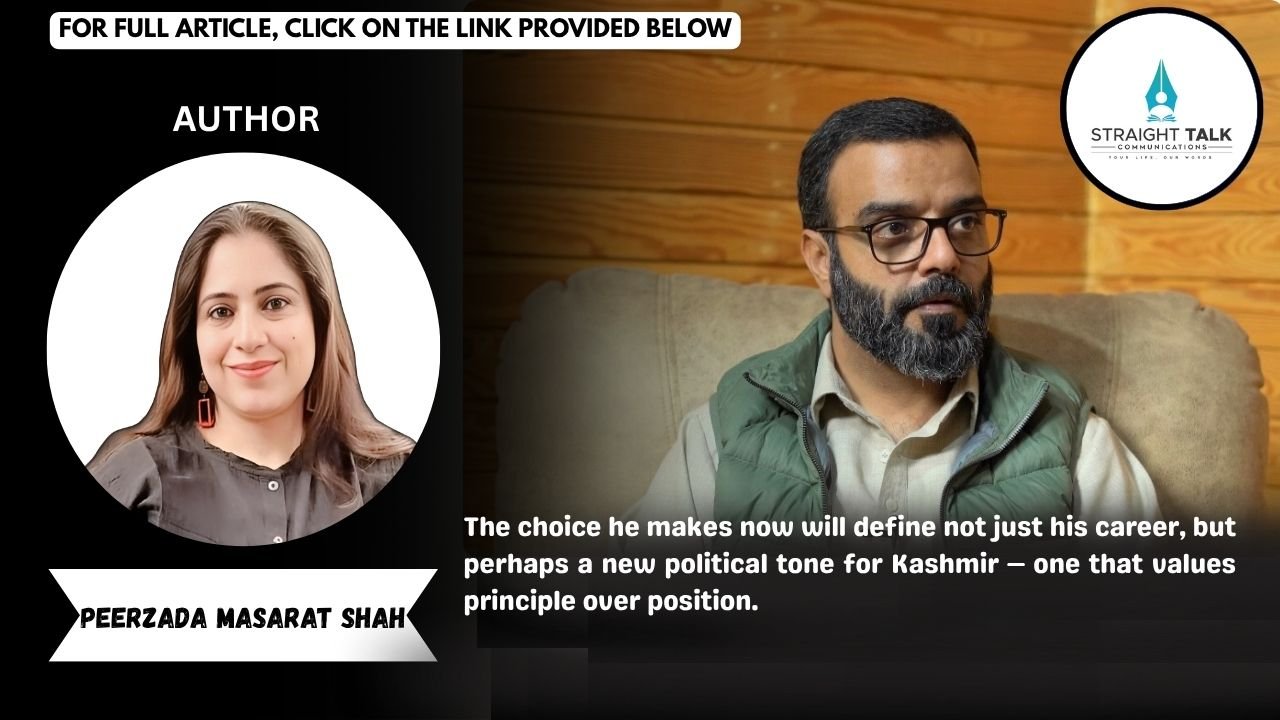Will Ruhullah Keep the Chair or Claim His Conscience?

The choice he makes now will define not just his career, but perhaps a new political tone for Kashmir — one that values principle over position.
Peerzada Masarat Shah
In the political corridors of Jammu and Kashmir, where loyalty is often louder than truth, Agha Syed Ruhullah Mehdi has once again chosen to speak — and his words are echoing uncomfortably within his own party. The Srinagar MP from the Jammu and Kashmir National Conference (JKNC) has stirred the hornet’s nest by taking a direct aim at Chief Minister Omar Abdullah, accusing the leadership of being more concerned about “pride than people’s pain.”
For a party that has long prided itself on discipline and unity, Ruhullah’s sharp criticism feels like a tremor that could signal something bigger. It’s not just a statement; it’s a symptom — of discontent, disillusionment, and perhaps, a shifting political conscience.
This isn’t Ruhullah’s first brush with defiance. Earlier this year, he staged a symbolic walkout from a crucial party meeting, citing frustration over the leadership’s detachment from ground realities. Before the Budgam by-election, he demanded transparency in the reservation and delimitation reports, warning that injustice in electoral mapping would be a betrayal of weaker communities. His October 27 declaration — “People voted for me because of what I stand for, not because of who I am” — resonated deeply with a generation increasingly weary of hollow slogans and political doublespeak.
But his growing assertiveness has brought him to a crossroads. If he truly believes his party has lost its moral compass, why continue sailing under its flag? Can one criticize the captain and still claim loyalty to the ship? It’s a dilemma that every conscientious politician faces at least once: stay within and reform, or step out and rebuild.
Ruhullah’s supporters, particularly the young voters who rallied behind him in 2024, see in him not a rebel, but a reformer — someone unafraid to challenge political stagnation. To them, his integrity is his currency. They expect from him not compromise, but courage. And courage, in politics, often comes with a cost.
If Ruhullah were to step aside and seek a fresh mandate independently, it would not be an act of defiance — it would be an act of faith. Faith in democracy, in accountability, and in his own conviction. It would turn this moment of internal tension into a test of truth — a test that could redefine the balance between loyalty and integrity in Kashmiri politics.
Of course, breaking away from a party like the JKNC — with its deep roots and emotional legacy — is easier said than done. The National Conference isn’t just a political organization; for many, it’s an inheritance. To walk away would be to challenge history itself. Yet, sometimes history changes direction when someone dares to question it.
Silence might be safe, but it’s rarely remembered. In an era when political convenience often drowns out conscience, Ruhullah’s dissent feels refreshingly uncomfortable. Whether he stays and fights within the system or steps out to create a new one, the choice he makes now will define not just his career, but perhaps a new political tone for Kashmir — one that values principle over position.
As the dust settles on his latest remarks, one question continues to swirl through party circles and public debates alike:
Will Agha Syed Ruhullah Mehdi remain seated in a party he says has lost its way — or will he stand up, step aside, and let the people decide if his truth still carries the weight of trust?
(Disclaimer: The views expressed in the articles are of the authors and doesn’t necessarily reflect the views of the Straight Talk Communications)








If he feels his conscience is hurt he should resign immediately